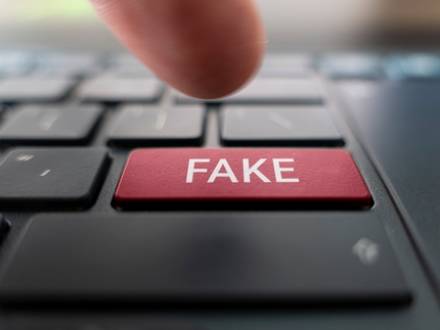Could I Have Committed Forgery in Illinois Without Realizing It?
 It is possible to unknowingly commit forgery in Illinois, but that does not immediately undermine the severity of the crime. Many different offenses fall under the umbrella of forgery and deceptive practices, and knowing exactly what you did wrong is the first step in building a defense. If you were charged with forgery and do not understand why, an Aurora, IL forgery and deceptive practice defense attorney can explain the allegations against you and how you may be able to challenge them.
It is possible to unknowingly commit forgery in Illinois, but that does not immediately undermine the severity of the crime. Many different offenses fall under the umbrella of forgery and deceptive practices, and knowing exactly what you did wrong is the first step in building a defense. If you were charged with forgery and do not understand why, an Aurora, IL forgery and deceptive practice defense attorney can explain the allegations against you and how you may be able to challenge them.
What Is Forgery Under Illinois Law?
Forgery generally refers to the act of changing or creating a false document to use it for deceptive purposes. That broad characterization can refer to a range of crimes, including everything from signing another person’s name on a legal document to generating a fake contract under someone else’s name. According to Illinois law, committing forgery is not limited to the act of creating or altering a document to make it look like someone else did it. It also requires delivering it when you know it is forged and using it to defraud.
What Are the Different Types of Forgery?
Forging a check is the most common offense. That can include changing the amount, signing it as someone else, or creating a completely fake check. You can be charged in criminal and civil court for forging a check, and the penalties will vary based on prior convictions and the check’s value.
Other types of forgery include:
-
Legal documents: Altering deeds, wills, and other binding contracts by changing the terms is a crime that can result in steep fines and imprisonment.
-
Public records: Altering or creating a false public document, such as a birth certificate or driver’s license, is a very serious offense in Illinois.
-
Forgery and identity theft: These are not the same charges but are often related. Opening an account in another person’s name or filing a false tax return is becoming more and more common. Creating a fake ID would qualify as forgery and identity theft.
-
Historical documents and art: Creating or altering historical documents to deceive buyers can carry severe penalties, depending on the value of the document and the extent of the fraud. The same is true for forging fake art to sell as originals.
Forgery is typically a Class 3 felony in Illinois, and a conviction could result in up to five years’ imprisonment and fines as high as $25,000. In some cases, you may have to pay the victims for damages.
How Can You Fight Forgery Charges in Illinois?
The first step in fighting a forgery charge in Illinois is to contact a criminal defense attorney. They will evaluate your case to determine the best possible defense strategy. Common approaches include proving that you did not have the intent to defraud someone or arguing that the person defrauded in the case actually gave you permission. Sometimes, it is a case of mistaken identity, and your attorney can argue that you have been falsely accused. An experienced attorney knows how to approach challenging allegations against you.
Talk to an Elgin, IL Forgery Defense Attorney Today
Forgery is a felony charge in Illinois and can result in severe legal consequences. Whether you intended to commit forgery or not, you need to speak with a Kane County, IL forgery defense lawyer at The Law Office of Brian J. Mirandola. We can help you understand your rights and the potential defense strategies that could reasonably apply to your case. Call 847-488-0889 to schedule a free consultation today.







